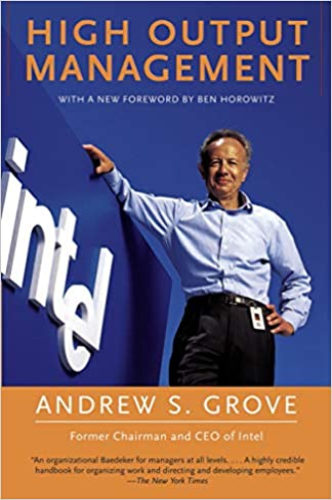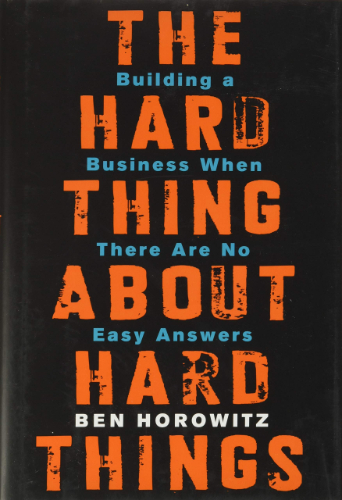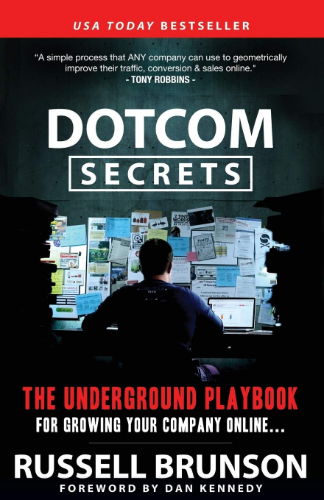Steve Jobs by Walter Isaacson: Summary and Notes

One sentence summary: Russel Brunson’s Steve Jobs: The Exclusive Biography by Walter Isaacson is the official biography of Jobs. It tells the story of Apple and the man behind the largest publicly traded company on earth.
One Paragraph summary: Steve Jobs chose Walter Isaacson as his official biographer, and their collaboration — about 40 in-person interviews — produced an outstanding narration of the life of one of the most remarkable men of the 21st century. The book presents Jobs in his true form: curious, rebellious, a pioneer, a leader, and sometimes ruthless, insensitive, and downright rude. You will love it.
Favorite quote from the author:
Abandoned.Chosen.Special.
Steve Jobs Walter Isaacson is the best Steve Jobs biography I've ever read. If there is a book that captures the story of Apple, Jobs, and the exciting period the 70s were in terms of the personal computer revolution, this has got to be it.
Walter Isaacson was personally chosen by Jobs to be his biographer partly because he also did the autobiographies of Einstein, Kissinger, Leonardo, and Benjamin Franklin. Jobs saw himself in the same league as these guys, and who are we to say otherwise.
Another thing that makes the book special is that Walter conducted at least 40 interviews with the man himself, and this was when Jobs was coming to terms with his mortality — the cancer was back. He also interviewed his colleagues, friends, rivals, and even foes. On his part, Jobs agreed to give Walter full editorial control because he had no ‘skeletons in the closet’. But that I would say is up to the reader to decide.
Thus, because Walter is such a great writer and because Jobs is such an interesting character — whom we all love — what you end up with is a book that's hard to put down. A book that is historical and full of many business and life lessons. It is also deeply personal; we get to see who the real Jobs was from his crying days to his rise as the business magnate we remember him as.
Main Takeaways from Steve Jobs: The Exclusive Biography by Walter Isaacson
-
Curiosity has its rewards
-
Control your environment
-
Believe with all your might
-
Recruit people who have a passion for the product
-
Figure out what the customer wants
-
Always move forward
-
You have nothing to lose
Lesson 1: Curiosity has its rewards
I recently read somewhere that Einstein was well, Einstein is because his curiosity remained child-like. Children are constantly probing, asking questions, experimenting and will never miss a chance to learn. Steve Jobs was like Einstein in this regard. As a child, he was always looking to know how things worked especially if they had something to do with electronics. He hung out with engineers, and as a 12-year-old boy even called the co-founder of HP Bill Hewlett, asking for spare parts. While at college, he only took courses that interested him and dropped out when education no longer made sense.
Throughout his life, Jobs maintained a curious mind and it was one of the reasons that Apple became such a powerful force in the computing world. The company is not afraid of pushing boundaries and its motto of Think Different is a testament of this.
Jobs learned to build radios with the help of an HP engineer, which made him believe that he could build anything. And that's another reward of curiosity. It gets you up and doing.
Lesson 2: Control your environment
Throughout the book, you will see that Jobs was a total prick when it came to controlling everyone and everything around him. It was either his way or the highway. Sometimes it helped, and sometimes it drove people away, but from what I have read from a dozen business books, it is essential to take responsibility for everything that comes your way. If you have a vision that only you can see, you must take charge and implement it. It doesn't mean that you have to be rude to people or that you should drive people away but take charge the way Jobs did.
Lesson 3: Believe with all your might
“Be a yardstick of quality. Some people aren't used to an environment where excellence is expected — .” Steve Jobs
Have you ever cried for anything? Steve Jobs has. He cried when Wozniak’s parents wanted to deny him his fair share of the company and he cried again when Wozniak hesitated to join Apple. Jobs demonstrated such a passion that people were willing to risk everything for him. One of the many things that he was never willing to compromise on was the quality of the product. He learned early on from his adopted father that even the interior of something needs to look good and he made sure that every Apple product was perfect.
Part of believing with all your might involves not focusing too much on your past. Here is a helpful quote from the book:
““If you want to live your life in a creative way, as an artist, you have to not look back too much. You have to be willing to take whatever you've done and whoever you were and throw them away.”
Lesson 4: Recruit people who have a passion for the product
This has to be one of my favorite lessons from the book. As Walter reports when Jobs wanted to recruit employees, he would unveil the Mac in front of them and watch “If their eyes lit up, if they went right for the mouse and started pointing and clicking, Steve would smile and hire them.”
His goal was to hire people who were as passionate about the product as he was. Jobs understood that when team members believe in the same things, everything becomes easier. The same is true for friends and colleagues. The goal is to have people who see things the way you do because life becomes easier.
Lesson 5: Figure out what the customer wants
Walter reports that Jobs' customer philosophy was simple: Customers don't know what they want until you show it to them. He modeled his approach after Henry Ford who famously said.
“I’d asked customers what they wanted, they would have told me, ‘A faster horse!”
“Some people say, ‘Give the customers what they want.’ But that’s not my approach. Out job is to figure out what they’re going to want before they do. I think Henry Ford once said, ‘If I’d asked customers what they wanted, they would have told me, ‘A faster horse!’’ People don’t know what they want until you show it to them.” — Steve Jobs
Lesson 6: Always move forward
“Jobs was a big admirer of Bob Dylan and not just because Dyaln’s music was the bomb but because he always kept pushing. I would like to elaborate this for but Jobs puts it best:
“You always have to keep pushing to innovate. Dylan could have sung protest songs forever and probably made a lot of money, but he didn’t. He had to move on, and when he did, by going electric in 1965, he alienated a lot of people. His 1966 Europe tour was his greatest. He would come on and do a set of acoustic guitar, and the audiences loved him. Then he brought out what became The Band, and they would all do an electric set, and the audience sometimes booed. There was one point where he was about to sing “Like a Rolling Stone” and someone from the audience yells “Judas!” And Dylan then says, “Play it fucking loud!” And they did. The Beatles were the same way. They kept evolving, moving, refining their art. That’s what I’ve always tried to do—keep moving. Otherwise, as Dylan says, if you’re not busy being born, you’re busy dying. — Steve Jobs
Lesson 7: You have nothing to lose
“JOne of my favorite things about Jobs is that he kept it real. He knew he was dying and not just after being diagnosed with cancer, throughout his life, he used death as his motivation to do things. He puts it best when he says.
“Remembering that you are going to die is the best way I know to avoid the trap of thinking you have something to lose. You are already naked. There is no reason not to follow your heart.”
Wrap Up
If Walter Isaacson’s other books are as great as Steve Jobs: The Exclusive Autobiography, I will be reading them too. Walter has a way of humanizing his characters. His summary of Jobs is: Abandoned.Chosen.Special.
Few authors can do that, especially for a character as complex as Steve Jobs. Kudos to Walter.
Who Would I recommend the Book To?
This is a book for everyone from the school-going kid to a fortune 500 company manager. Steve Jobs is an inspiration to us all.
GET THE BOOK ON AMAZONRate this book!
This book has an average rating of 5 based on 2 votes.









































